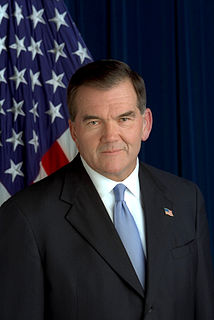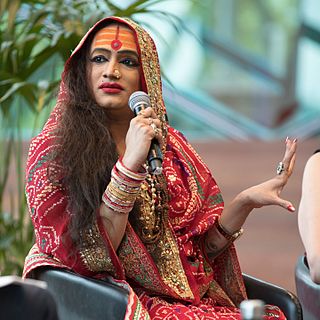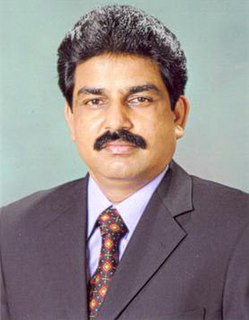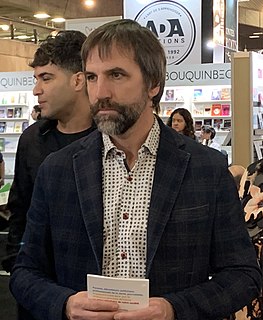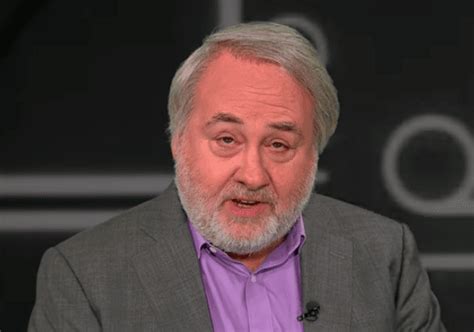Top 834 Pakistan Quotes & Sayings - Page 14
Explore popular Pakistan quotes.
Last updated on December 22, 2024.
Extreme weather like the droughts in Russia, China and Brazil and the flooding in Pakistan and Australia [in 2010] have contributed to a level of food price volatility we haven't seen since the oil crisisof 40 years ago. Unfortunately, this could be just a taste of things to come because in the next few decades the build-up of greenhouse gases already in the atmosphere could greatly increase the risk of droughts, flooding, pest infestation and water scarcity for agriculture systems already under tremendous stress.
Remember back then we thought about al Qaeda in Afghanistan and Pakistan and a few other places? well, we've seen al Qaeda metastasize. It is now a global scourge. And you have the ascendancy of ISIL. The combination of those two groups -- their appeal to the lone wolfs and we see them acting in Belgium and in France and in Canada and the United States so the threat factors and the nature of the threats are far more complicated and far more serious today than on September 12, 2001.
My mother was a tremendous woman. I was just cleaning up old trunks and I found a book with her notes written during the war years, in the 1940s. She was studying in Lahore, which became Pakistan. She was writing about how women alone could bring peace to the world, that the men with all their greed and egos were creating all these tensions and violence. I always knew she was a feminist, ahead of her time.
Indira Gandhi had been this very powerful, dominating, ambiguous mother figure. Ambiguous because she was tyrannical, she had imposed...she had suspended Indian democracy for a few years but she also was the woman who had defeated Pakistan in war at a time when most male politicians in India had secretly feared fighting that war, so that here in India even today Indira Gandhi is called by Indian nationalists the only man ever to have governed India.
I feel engaged with young people in Pakistan. But that said, it's still a small minority that reads novels, literary fiction. But it isn't necessarily a small minority of the wealthy elite in the city of Lahore. It can often be and I often do meet at literary festivals students who've ridden a bus 12 hours from a very small town just to hear some of their favorite writers come and speak.
After the revolution of 1979, Iran embarked on a policy of sectarianism. Iran began a policy of expanding its revolution, of interfering with the affairs of its neighbors, a policy of assassinating diplomats and of attacking embassies. Iran is responsible for a number of terrorist attacks in the Kingdom, it is responsible for smuggling explosives and drugs into Saudi Arabia. And Iran is responsible for setting up sectarian militias in Iraq, Pakistan, Afghanistan and Yemen, whose objective is to destabilize those countries.
The Soviets held to the tradition of colonialism. They raped the country and killed many people. But they also built dams, electrical power plants, streets, and technical schools. They were communists and had the same vision for Afghanistan that Stalin and Lenin had for the Soviet Union: Progress is communism plus electrification. And today? Today Kabul gets its electrical power from Uzbekistan, Herat from Iran and Jalalabad from Pakistan.
If in the past, you didn't cry out when thousands of protesters were killed and injured by Turkey, Egypt and Libya, when more victims than ever were hanged by Iran, women and children in Afghanistan were bombed, whole communities were massacred in South Sudan, 1800 Palestinians were starved and murdered by Assad in Syria, hundreds in Pakistan were killed by jihadist terror attacks, 10,000 Iraqis were killed by terrorists, villagers were slaughtered in Nigeria, but you only cry out for Gaza, then you are not Pro Human Rights, you are only Anti-Israel.
When you think of how much violence, how much blood... how much has been destroyed to create the great nations, America, Australia, Britain, Germany, France, Belgium - even India, Pakistan. Having destroyed so much to make them, we must have nuclear weapons to protect them - and climate change to hold up their way of life... a two-pronged annihilation project.
Yes, I think lots of people are eager to obtain weapons of mass destruction. But there's no evidence that he has weapons of mass destruction. There's been no evidence of him testing nuclear weapons.
We have people that are in our face with nuclear weapons. We've got Iran and North Korea. We've got a problem with Pakistan. You know, I don't know what to say about that.
There's a whole lot of people that are going nuclear. And I think that Saddam Hussein is actually, with the evidence, the least able to use nuclear weapons and the least obvious offender in that area at this moment.
When somebody asks me, "Who are you?" I tell them, "I am the oldest ethnic transgender community in the world, which has its own culture and own religious beliefs." And we are in four countries in South Asia: India, Pakistan, Bangladesh, and the Terai region of Nepal. What binds us hijras together is the same pain that has gone through our lives, which is much thicker than blood. That's why in our community we don't have old-age homes. Our guru may be horrible, but at the same time, we take care of the guru till the last breath.
I believe that the Israelis and the Palestinians, by and large, want peace, they each want their own country, and they want to get along, and they are going to get along. I know it sounds unbelievable, but I know enough about this, having been there, that these are sophisticated people. It's not like in Pakistan, where people have been told about Jews for a thousand years but don't know any. The Palestinians know the Jews.
Incidentally, I am intrigued by how many European and Latin American writers expressed their political views in the columns they routinely wrote or write in the popular press, like Saramago, Vargas Llosa, and Eco. This strikes me as one way of avoiding opinionated fiction, and allowing your imagination a broader latitude. Similarly, fiction writers from places like India and Pakistan are commonly expected to provide primers to their country's histories and present-day conflicts. But we haven't had that tradition in Anglo-America.
Recently, while I was in England, I saw a documentary on the BBC about the border between India and Pakistan at Wagah. When the border closes each evening around six o' clock, the soldiers on each side do these amazing high-stepping peacock march-offs (like a dance-off). The displays are almost identical on each side and thousands gather to watch them. Though they're patrolling along their separate borders, what comes across is how similar they are.
I do think that it is impossible for us to think only in terms of the Palestinian-Israeli conflict and not think in terms of what's happening with Syria or Iran or Lebanon or Afghanistan and Pakistan. These things are interrelated. And if we are looking at the region as a whole and communicating a message to the Arab world and the Muslim world, that we are ready to initiate a new partnership based on mutual respect and mutual interest, then I think that we can make significant progress.
However, after the assassination of Salman Taseer, the killer of Salman Taseer was welcomed by the religious fanatics. And they showered rose petals on him and declared him a hero of Islam. That is a matter of concern for every peace-loving citizen of Pakistan because terrorists and killers should not be given this type of encouragement. And this is encouragement for other people to take lives with their own hands and kill innocent people.
In some big cities [in Pakistan] some women have access to a job and education - but the UN reported that more than 5 million girls cannot go to school. It's become an open secret. In some big cities they build schools to deceive people around the world, while the level of education remains very low, and even when they can go to school there is no security.
When I came back from Pakistan, I wanted to take computer classes nearby. I asked my brother. I was in my home, cooking for my family, and all our relatives and guests. But I said, "I want to live my life as a woman, but I want to study." But, he told me, "Just study at home, you don't need to go out." He said, "If you go to the courses, what will our relatives say? They will lose respect for us." They told me, "We know you're feeling different, but we cannot do anything about it."
There were the physical challenges of hitchhiking across Turkey, Iran, Afghanistan, and Pakistan as they were quite dangerous areas. I wrote about that in The Journey Home. I loved my family and they loved me, so making a choice so completely different from the life they knew was also a challenge. Not having material possessions or the security of a home and taking vows of celibacy for life were kind of natural for me, although they were also challenging. But I guess the greatest challenge for me was that I loved so many different spiritual paths.
Living in a place like Pakistan, very often you meet people who are migrating abroad. And sometimes you'll ask their parents, you know - you didn't try to stop them? Like, why didn't you say, don't go - I'll miss you? Stay with me. And, you know, people say, well, it's best for them. They have to go. And parents, you know, take on that sadness because they know it's better for their children if they leave.
Climate change that is occurring right now is causing so much suffering all around the world. Whether it's adding 30 million people to the "at risk of starvation" list in 2008, whether it's the floods in Pakistan, or entire cultures at risk of disappearing, or desertification in Africa - all these things that are currently being caused by climate change. I think it's something that a lot of people want to figure out: how to make the shift, how to help. It seems like such an overwhelming problem.
Let me name three of the people who influenced me, although it's definitely not a complete list. Ayesha Jalal, the formidable Pakistani-American historian, has rigorously re-evaluated Jinnah's political strategies leading up to Partition. Akbar Ahmed, a former diplomat and now a distinguished scholar, has documented Jinnah's life as a man who welcomed, worked with, and even married people of other faiths. And then there is Ardeshir Cowasjee, the great Parsi newspaper columnist, who in his mid-80s is a kind of living history of all of Pakistan, old enough to have known Jinnah himself.
Remember...this year has already seen more billion-dollar weather-related disasters than any year in US history. Last year was the warmest ever recorded on planet Earth. Arctic sea ice is near all-time record lows. Record floods from Pakistan to Queensland to the Mississippi basin; record drought from the steppes of Russia to the plains of Texas...This is what climate change looks like in its early stages.
In April [1972], after that fine business in Dacca, Yahya Khan sent for me. He looked satisfied, sure of himself, by now convinced he had the situation in hand. He offered me a drink. "Well, you politicians are really finished," he said. Then he said that not only Mujib but I too was considered an agitator, I too was preaching against the unity of Pakistan. "I'm always under pressure to arrest you, Bhutto" I got so angry I lost all control.
Now I don't have to explain to the world about India's position. The world is unanimously appreciating India's position. And the world is seeing that Pakistan is finding it difficult to respond. If we had become an obstacle, then we would have had to explain to the world that we are not that obstacle. Now we don't have to explain to the world. The world knows our intentions. Like on the issue of terrorism, the world never bought India's theory on terrorism. They would sometime dismiss it by saying that it's your law and order problem.
The Islamists had control over territory that was about half the size of the Federal Republic of Germany. For years, we have been putting the lives of our troops on the line, we have taken huge losses and the Europeans cut the budget? If money is more important than the lives of our children, what else is this than the usual arrogance and superficiality? And where is all this terror coming from? It is a result of mistakes the West committed in Pakistan and Afghanistan in the 1980s, when they armed the Islamic rebels against the Soviet troops.
I think that we don't have, here in the Middle East or in Africa, as much threat to our physical and economic livelihood as women in other parts of the world. But the continuum is the same. The pressures on women to fit into a certain image of a good Muslim girl is the same. The controls and rules are the same, but there are different degrees of it. So, in America, a father will threaten a daughter that he will disown her if she marries the American boyfriend and in Pakistan she faces acid thrown on her face. The power dynamic is the same, it just expresses itself differently.
Do you know why I won the last elections? It was because the people liked me, yes, because I had worked, yes, but also because the opposition had behaved badly toward me. And do you know why I won this war? Because my army was able to do it, yes, but also because the Americans were on the side of Pakistan.
Bopha, Sandy, floods in Pakistan, droughts in China… How many reports from the likes of the World Bank, NASA and the International Energy Agency will it take? How many preventable catastrophes until our leaders realize that climate change will not be solved by nice speeches and empty promises? Countries like Canada and the U.S. have promised to reduce their greenhouse gas pollution and provide adequate financial support for developing countries, they have so far failed on both counts.
I have witnessed firsthand the anguish of this humanitarian tragedy - in Palestine, Iraq, Syria, Pakistan, and other conflict and post-conflict zones. The destruction of lives and hopes, the emotional trauma, and the economic, social, and political marginalization of the displaced, the human insecurity, with real and potentially devastating consequences over generations, in ever-widening arenas of conflict. We can and must ensure the human rights of the displaced. That begins by making their voices heard.
Pakistan is, I always feel, hopeful. You know, our system of government is not, and the system of foreign policy whereby we do whatever is asked of us as long as the price is right only proves to fundamentalist outfits and to militant groups that when we talk of things like democracy, when we talk of things like foreign policy, what we're really talking about is being pro-American.
Everywhere I go in Pakistan and Afghanistan, I am touched by the fierce desire for education, and the outpouring of hospitality and generosity. The most important ingredient is the relationships. The process takes "Three Cups of Tea". First you are a stranger, second a friend, and the third, you become family, but the process takes several years. Here in America, we have 8 second sound bytes, 2 minute football drills, and thirty minute power lunches.
The issue has two dimensions. One is the legal dimension and the other one is the issue at the realpolitik. [In the] legal realm, we believe in equal rights for all people in all nations. If Israel, the United States, Russia, Pakistan, other countries, China, have the right to have a nuclear program and nuclear bomb, Iran, too, must have that same right. Now, at the realm of realpolitik, because there is a global consensus against Iran, and because there are all manner of dangers facing Iran, I am opposed to this program.
After a short period of time in Pakistan, it's clear that drones are not a security solution. If you believe in drones, the original idea was to go after so-called high-value targets, which according to the NYU-Stanford study 2% of the people killed by drones are high-value targets - now, who are all the rest of the people? Well, it's a secret program, so therefore the CIA doesn't have to tell us anything, yet they claim that with each attack they're getting militants. Now we have people coming forward, saying, actually, no we're not terrorists.
So the idea about how detonation of a nuclear weapon might happen vary, you know - some people are especially concerned about terrorists getting their hands on nuclear weapons and using them. Some people are worried that there might be a nuclear war between India and Pakistan. Some think the Middle East, were Israel already has nuclear weapons and where other countries may be interested at some point and acquiring them, might be a flash point.
India just went 3 years with no cases [of polio]. Pakistan is our toughest location right now because some parts of the Taliban have not allowed vaccinators to come in and have even attacked vaccinators. We are hopeful this will get resolved since no one wants their kid to be paralyzed. I spend a lot of time making sure the polio campaign is doing the best it can. We have great computer models that help guide our activities.
Well, one thing that has changed is the number of people killed by terrorists in Pakistan. Civilians killed has gone down really quite dramatically. There was a newspaper article here about a month ago that got big headlines which said that civilian deaths from terrorism were down something like 80 percent or 90 percent from their peak of two or three years ago.
Killing a bunch of people in Sudan and Yemen and Pakistan, it's like, "Who cares - we don't know them." But the current discussion is framed as "When can the President kill an American citizen?" Now in my mind, killing a non-American citizen without due process is just as criminal as killing an American citizen without due process - but whatever gets us to the table to discuss this thing, we're going to take it.
I spoke to my father - my father's from Pakistan and he's also a lawyer - I said to him, "Well what does the Shari'a say?" And he said, "Well, of course it doesn't justify suicide bombs," but he didn't seem to know where the Shari'a came from or what it was all about. The more I asked people in my family as well as friends, the more I realized that there seemed to be widespread ignorance in the Muslim community. And that's something which I actually found to be the case over the next two and a half, three years I spent writing the book.
The condition of women in Islamic societies as a whole is far from desirable. However, we should acknowledge that there are differences. In certain countries, the conditions are much better and in others much worse. For example, the conditions women face even in Egypt differ a whole lot from what their Iranian counterparts deal with. The condition of women in Pakistan is far different from that in Saudi Arabia. This shows that you can have different interpretations of Islam.
I think that things were getting really very bad a couple of years ago, and there's been a very significant change in response to that on the part of the security forces and the government, but particularly the army. And you see Pakistan actually fighting terrorism and terrorists in a much more wholehearted way than had been occurring previously. It's not anywhere close to over yet, but you've seen a big change in the antiterrorism campaign here.
There is no doubt that this fusion of terrorist and Muslim feeds virulent forms of Islamophobia, which is also encouraged by such incidents as the Westgate Mall massacre in Nairobi and the Anglican Church bombing in Pakistan. 9/11 greatly intensified this tendency toward fusion, but it had also been nurtured by Israeli propaganda that portrayed their Palestinian and Arab adversaries as "terrorists." In fact, the US government approach after 9/11 was modeled in many of its features on Israeli tactics developed during the long occupation of Palestine.
Education is the key to perpetuation of the [god] virus for the Taliban, Baptist or Catholic. If the virus cannot control public education, it will seek to divert resources from public coffers to fundamentalist school funding. From the madrassa schools of Pakistan to the Christian push for school vouchers in the United States and the religious home school movement, religions seek to control education or to control the resources for education.
At some point, deliberation begins to look more like indecisiveness which then becomes a way of emboldening our enemies and allies and causing our allies to question our resolve. So we shouldn't let one component of this determine our national security here which depends on providing an Afghanistan which denies a safe haven to terrorists as well as stabilizing Pakistan. Those are our two national security interests at stake in Afghanistan.
There is a reason why Nelson Mandela went to Cuba to praise Castro and thank the Cuban people almost as soon as he got out of jail. That's a third world reaction and they understand it. Cuba played an enormous role in the liberation of Africa and the overthrow of Apartheid, sending doctors and teachers to the poorest places in the world, to Haiti, to Pakistan after the earthquake, almost everywhere. The internationalism is just astonishing. I don't think there has been anything like it in history.
As a critic, I try to stay neutral about movies before I see them, but I really wanted "Whiskey Tango Foxtrot" to be great. It's based on a barbed memoir by Kim Barker called "The Taliban Shuffle: Strange Days In Afghanistan And Pakistan." And its stars Tina Fey, out of her comfort zone, just as Barker was a fish out of water when, in 2004, she began covering the Afghanistan occupation for the Chicago Tribune.
In 1979, you had the revolution in Iran. You had the Hudood Ordinances in Pakistan, which are the laws that are notoriously used against women, which are theoretically used against thieves although they're never carried out - an actual amputation or an actual stoning. The blasphemy laws, again, never actually carried out, though they're there, heavy with menace on the statute books.
I would recommend any American who wants to understand where the government is going in the next four years of George W. Bush presidency to get a copy of her confirmation hearings before the Senate Foreign Relations Committee. It's a road map, and it's pretty frightening testimony. Their definition of where democracy should go in the Middle East doesn't include Egypt, Jordan, Saudi Arabia, Pakistan; it only includes Iraq, Iran, and Syria.
Our [Afghanistan] main problem is education. Over 90 percent of our population is uneducated. So what can you expect? The terrorists come from Syria, Iraq, Pakistan, saying the Quran says this, Quran says that, and the Afghans believe that because they speak Arabic, they think they know the language of Quran, and they know Islam better than us, let's follow them. So they simply follow them.
We do not want to keep our troops in Afghanistan. We see no military - we seek no military bases there. It is agonizing for America to lose our young men and women. It is costly and politically difficult to continue this conflict. We would gladly bring every single one of our troops home if we could be confident that there were not violent extremists in Afghanistan and now Pakistan determined to kill as many Americans as they possibly can.
If Afghan soldiers continue to kill American soldiers as is happening these days, it can hardly be assumed that they will stay in Afghanistan in the long term. And what role are they to play? There will not be enough soldiers to ensure the security of the country. But will the US still be permitted to kill terrorists in Afghanistan and Pakistan with un-manned drones? That could worsen the situation in the neighboring states and they could view Afghanistan as a threat.
We are human behind and this part of our human nature that we don't learn the importance of anything until it's snatched from our hands. In Pakistan, when we were stopped from going to school, and that time I realized that education is very important, and education is the power for women. And that's why the terrorists are afraid of education. They do not want women to get education because then women will become more powerful.
I did an embed in Afghanistan on the Pakistan border in 2008. One of the things you realize when you're talking to low-ranking enlisted men is that no one listens to them. So when I showed up they loved having someone to talk to. That's a real privilege for me. The guys on the ground are the guys I care about. I've had the most satisfaction telling their stories. There is trust and there is stuff that you learn to hold back, especially when you're dealing with younger guys or lower ranking officers. That's different from the top brass who are basically just politicians anyway.
I've never seen a single demonstration in Pakistan, in the streets of Gaza, in the West Bank, in which the people have come out with signs saying, "Please give us better roads. Please give us new prenatal clinics. Please give us a new sewage system." I'm sure they'd like those things, but it's not what they demand in the demonstrations. In the demonstrations, they talk about justice, they talk about an end to Israeli occupation.

